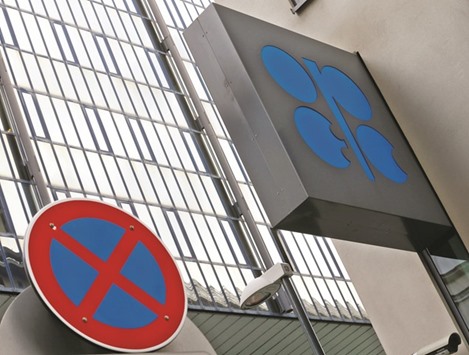Now is the right time for Opec to reach an agreement on oil output, and crude prices may fall if its members fail to take a decision when they meet next week in Algiers, Iraq’s governor to the producer group said.
Conditions in the oil market are better than in April when members of the Organisation of Petroleum Exporting Countries tried without success to strike a deal with other producers, including Russia, to stabilise markets, Falah al-Amri said at an energy event in Fujairah in the UAE. Countries including Iran have boosted output and reached their targets, and current oil prices are not good for producers, he said.
“This is the right time” for an agreement, al-Amri said. Crude is unlikely to rise above $50 a barrel unless Opec reduces production, he said.
Opec’s 14 members will hold talks on September 28 in Algiers to address a global supply glut that led prices to drop by more than half from their 2014 peak. They may discuss proposals to cap production along with Russia and other countries outside the group. The planned talks signal that Opec may reconsider the policy the group adopted in 2014 that lets members boost output to defend their market share.
Iraq won’t participate in any action that will reduce prices, and it won’t flood the market, said al-Amri, who is also the director general of the country’s Oil Marketing Co, known as SOMO. The nation pumped 4.775mn bpd in January, a modest increase from its output in 1979 of 3.8mn, he said.
Iraq, Opec’s second-biggest producer after Saudi Arabia, is selling all of its current production of 850,000 bpd of Basrah Heavy grade crude, and it needs to pump more to meet existing customer demand, he said. It will continue increasing output “gradually and quietly,” al-Amri said, without specifying a target.
Opec’s last attempt to reach a deal, which also involved Russia, the largest non-Opec producer, fell apart in Doha in mid-April when Saudi Arabia insisted that Iran also had to freeze production. Iran had refused because it wanted to revive exports after the end of international sanctions.
Iran is exporting 2.3mn bpd to 2.4mn bpd of oil, and National Iranian Tanker Co is seeking to regain its share of the oil-shipping market, the state-run company’s commercial director Nasrollah Sardashti said at the event in Fujairah.

The Opec logo is pictured behind a traffic sign at its headquarters in Vienna. Opec’s 14 members will hold talks on September 28 in Algiers to address a global supply glut that led prices to drop by more than half from their 2014 peak.
